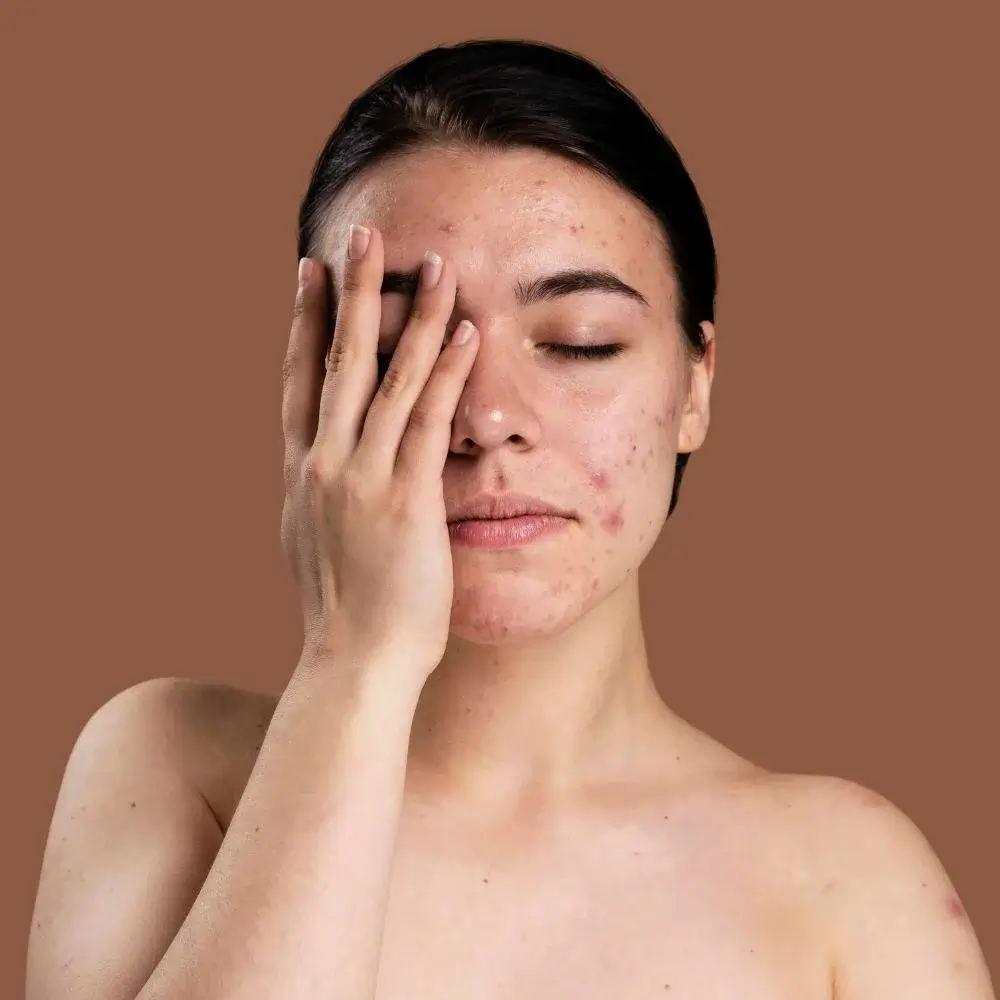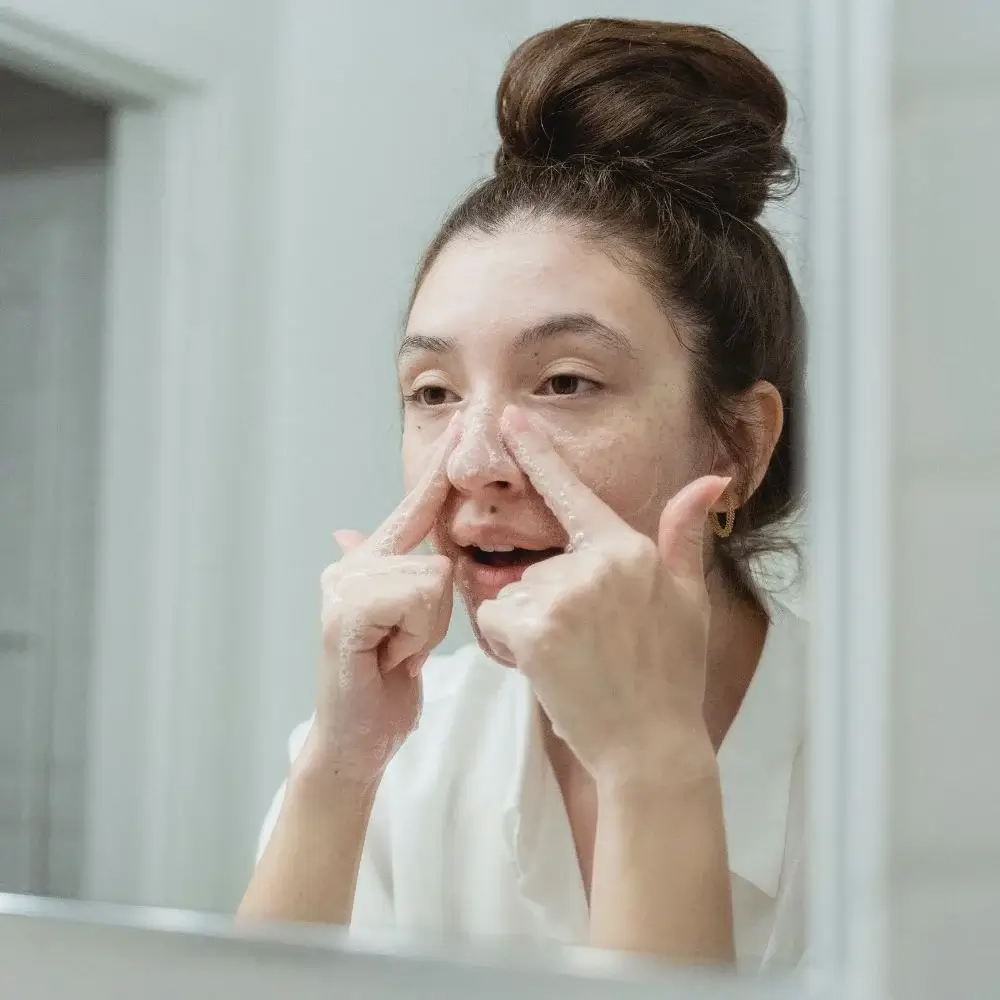Acne is more than just occasional breakouts; it encompasses a wide range of skin conditions. By gaining a deeper understanding of the different types of acne, you can better identify the specific concerns you may be facing and develop a targeted approach to treating and managing your skin.
Comedonal Acne
Comedonal acne is characterized by the presence of comedones, which are non-inflammatory skin lesions. They can take the form of either whiteheads or blackheads. This type of acne is often caused by excess oil production and clogged hair follicles.
To prevent comedonal acne, it is important to keep the skin clean and exfoliated. Treatment options may include topical retinoids, gentle exfoliation, and proper skincare routines.
Inflammatory Acne
Inflammatory acne is characterized by red, swollen, and often painful pimples. It occurs when bacteria, excess oil, and dead skin cells clog the hair follicles, leading to inflammation. Factors such as hormonal imbalances and stress can contribute to the development of inflammatory acne.
Preventing inflammatory acne involves maintaining good hygiene, avoiding excessive touching of the face, and using non-comedogenic skincare products. Treatment options may include topical or oral medications, such as antibiotics or benzoyl peroxide.
Cystic Acne
Cystic acne is one of the most severe forms of acne. It is characterized by large, painful, and deep-seated cysts beneath the skin. Hormonal fluctuations, genetics, and certain lifestyle factors often cause cystic acne.
Preventing cystic acne can be challenging, but maintaining a consistent skincare routine and a healthy lifestyle can help. Treatment options may include prescription medications, such as oral isotretinoin or hormonal therapy.
Hormonal Acne
Hormonal acne is primarily influenced by hormone fluctuations, particularly during puberty, menstrual cycles, or hormonal disorders. It typically appears as deep, tender, and inflamed pimples, mainly around the chin and jawline.
Managing hormonal acne involves addressing the underlying hormonal imbalances. This may include lifestyle modifications, such as a healthy diet, stress management, and hormone-regulating medications.
Understanding the different types of acne is crucial for effective treatment and management. Each type requires a tailored approach to address its specific characteristics and causes. Besides, it is important to develop a consistent skincare routine and maintain good overall health. Consider incorporating skincare products specially formulated for your acne type to support your acne treatment journey. Consult a dermatologist to determine the best course of action and explore suitable skincare options to help you achieve clearer, healthier skin.
After extensive research to identify the paramount solution for treating acne, your journey to clearer skin is at a pivotal moment. The culmination of our efforts has led us to what is the Best Acne Treatment. Don't hesitate—follow the link provided to discover and embrace your new favorite. This is the gateway to a skincare regimen tailored to address your specific needs, promising a transformative experience. Click now to unveil the Best Acne Treatment and embark on a path to radiant, blemish-free skin. Your skin deserves the best—find it through this link.
What is the link between acne and skincare products?
Understanding the nuanced connection between acne and skincare products is pivotal for effective skincare. Certain products, though seemingly beneficial, may harbor comedogenic ingredients that have the potential to clog pores, exacerbating acne concerns. It is imperative to opt for non-comedogenic formulations, scrutinizing product labels for ingredients that align with acne-prone skin. Regularly reassessing your skincare routine and seeking guidance from a dermatologist can ensure a curated approach that meets your skin's unique needs, fostering a healthy complexion free from unwanted breakouts.

What role does sleep hygiene play in managing acne?
The impact of sleep hygiene on acne management is substantial, as insufficient sleep can elevate stress levels, triggering hormonal fluctuations that contribute to acne development. Establishing a consistent sleep routine, creating a conducive sleep environment that is cool and dark, and prioritizing sufficient rest are integral components of effective acne care. Adequate sleep enhances the skin's ability to repair and regenerate, promoting overall skin health and resilience against acne-related challenges. Integrating robust sleep hygiene practices into your routine can positively influence the clarity and vibrancy of your skin.

What are the best practices for preventing acne scarring?
Preventing acne scarring requires a proactive and multifaceted approach. Avoiding the temptation to pick or squeeze blemishes is paramount, as these actions can increase the likelihood of scarring. Gentle exfoliation is beneficial to encourage skin renewal and reduce the prominence of existing scars. Consistent use of sunscreen is essential to shield the skin from harmful UV rays, which can exacerbate scarring. In cases of persistent acne or concerns about scarring, seeking guidance from a dermatologist ensures access to advanced interventions tailored to minimize scarring risks and promote smoother, healthier skin.

How long does it typically take for acne medications to show results?
The timeline for observing results from acne medications can vary among individuals. While some may experience visible improvement within a few weeks of consistent use, others may require several months for the full impact to become evident. Patience is a crucial virtue in the realm of acne management, emphasizing the importance of adhering to the prescribed treatment regimen. Should questions arise regarding the timeline or effectiveness of a specific acne medication, it is advisable to consult with a dermatologist for personalized insights and potential adjustments to optimize outcomes.

How does diet modification contribute to acne management?
Diet modification plays a significant role in comprehensive acne management. High-glycemic foods and dairy have been implicated in influencing acne development. Adopting a balanced, low-glycemic diet rich in fruits, vegetables, and hydration can positively impact skin health. While diet modification alone may not cure acne, it is a complementary strategy to other acne management approaches. Collaborating with a healthcare professional, such as a dermatologist or nutritionist, can facilitate a tailored dietary plan that aligns with your skin's needs, contributing to a holistic and effective acne management strategy.
Should individuals with acne-prone skin use moisturizers?
Moisturizer usage is indispensable for individuals with acne-prone skin, challenging the misconception that avoiding moisturizers benefits acne. Opting for non-comedogenic, oil-free formulations is crucial to provide adequate hydration without exacerbating pore congestion. Proper moisturization contributes to maintaining the skin barrier's integrity, preventing the skin from compensating with excessive oil production. Selecting a moisturizer that aligns with your specific skin type requires careful consideration. Consulting with a dermatologist ensures access to professional insights, enabling the identification of the most suitable moisturizers tailored to your skin's unique needs. Maintaining a well-balanced skincare routine, including appropriate moisturization, fosters optimal skin health for acne patients.







